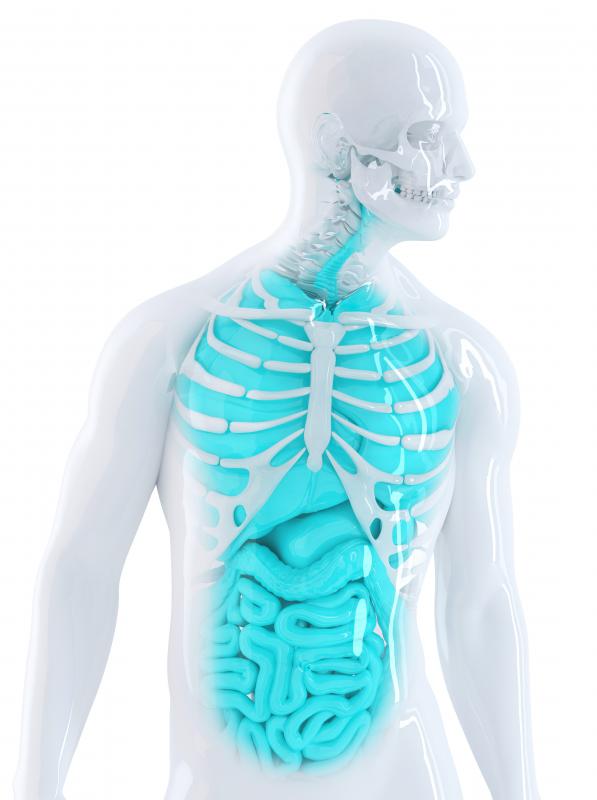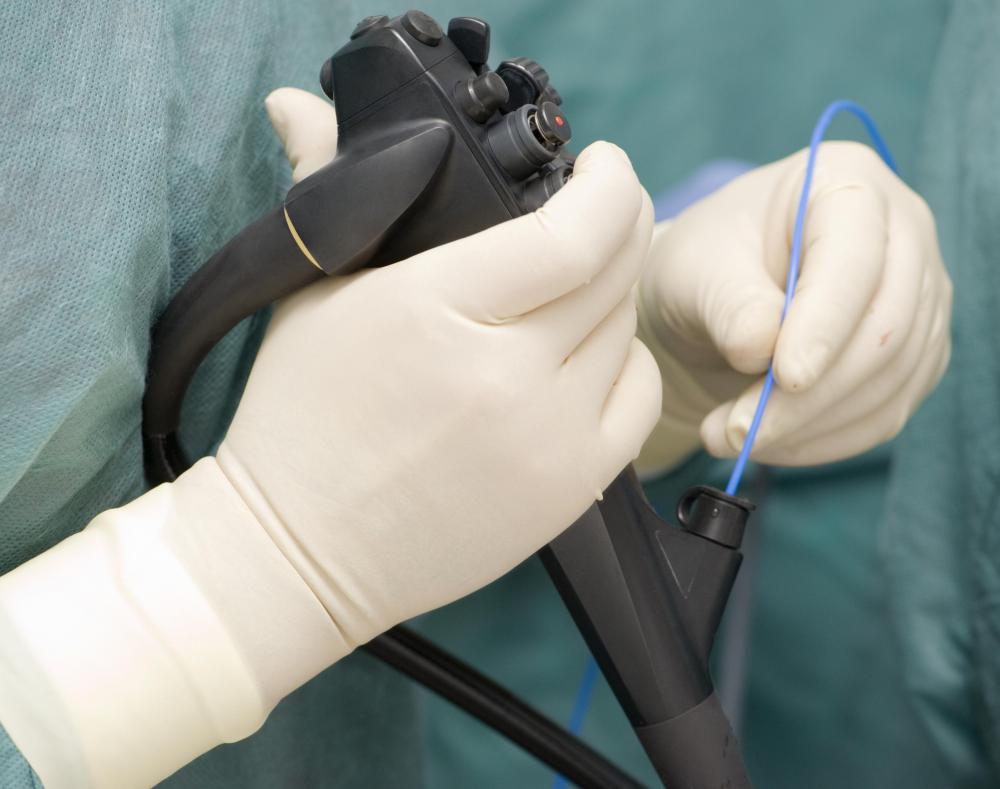At TheHealthBoard, we're committed to delivering accurate, trustworthy information. Our expert-authored content is rigorously fact-checked and sourced from credible authorities. Discover how we uphold the highest standards in providing you with reliable knowledge.
What Is the Relationship between the Digestive System and Homeostasis?
The digestive system and homeostasis of the human body are inextricably related because humans are ingestive heterotrophs, meaning that the body is required to have a mechanism by which to assimilate an outside source of nourishment. In order for the digestive system and homeostasis regulation to be successful, the essential nutrients of the foodstuffs eaten need to be refined and manipulated, and the “wear and tear” of the structure of the digestive system needs to be repaired and replenished when needed. In addition, every body system depends on the breakdown and assimilation of nutrients to repair, build, and maintain tissues. An abundance of chemical, mechanical, and enzymatic processes are responsible for digestive system homeostasis.
Digestion is performed by the body as food moves through the body in a conveyer-like system of organs that break down the food into an acceptable fuel for the body’s cells. The process begins in the mouth when enzymes are first introduced via the saliva. One of the most auspicious connections between the digestive system and homeostasis is the maintenance of the potential of hydrogen (pH) balance in the digestive tract. Homeostasis in the digestive tract is achieved by the body’s ability to change the pH dramatically from the saliva, which is only slightly acidic, to a highly acidic gastric environment that breaks the food down rapidly and protects the body from bacteria and other pathogens. Even more dramatic is the pH change to a significantly basic environment in the small intestine, which is required for the enzymes specific to the intestine to function properly.

Another relevant connection between the digestive system and homeostasis within the body is maintaining a hospitable atmosphere for helpful bacteria. Regulation of pH combined with other factors, like maintaining a balanced enzyme ratio, allows beneficial gut flora like acidophilus and bifidobacterium to help the body fight off less desirable bacterial colonies that could cause potentially life-threatening infection and disease. Helpful bacteria have the ability to break down some carcinogens and drug metabolites that have been shown to cause cancer, a disease that is propagated by the severe degradation of overall homeostatic status within the body. Helpful bacteria also produce vitamin K and other various biologic substances that the body is incapable of producing by itself.

Having a proper balance of enzymes, bacteria, and pH is considered by most health care professionals to be the principle connection between the digestive system and homeostasis. Patients who make lifestyle choices that promote these conditions are more likely to maintain a healthy body weight and be well-nourished. They are less likely to suffer from serious diseases, like cancer and diabetes, as well.
AS FEATURED ON:
AS FEATURED ON:

















Discuss this Article
Post your comments